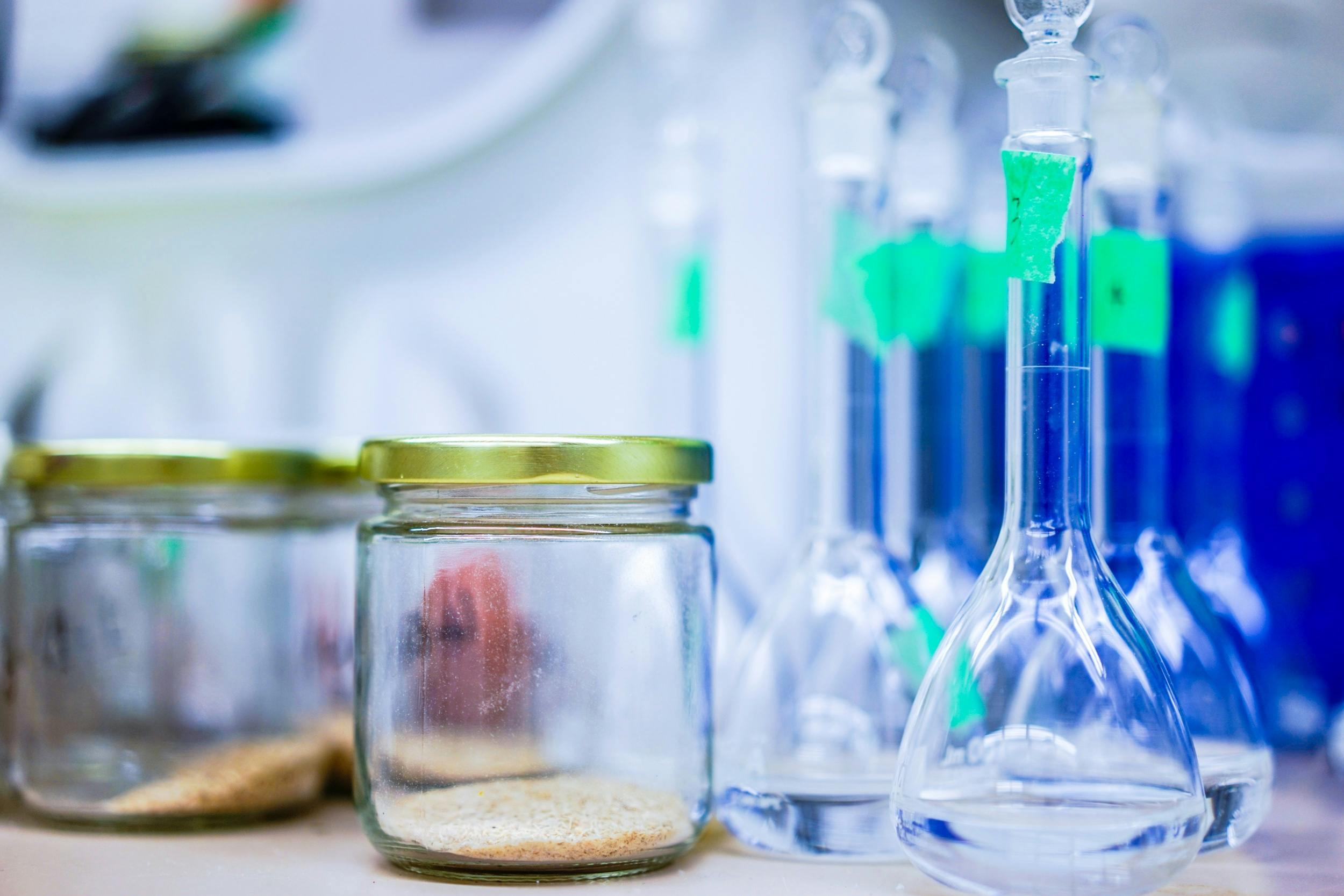If you’re considering studying chemistry after finishing up your secondary school education, then it's likely you’ve already got Bristol University on your shortlist of destinations. Given the extent to which studying at the right university can shape not only your academic success but also your professional path after that, it’s imperative you make the right choice the first time around.
For many students, the decision is a no-brainer, seeing as Bristol University's chemistry department ranks among the UK's finest. The department also combines centuries of academic excellence with advanced research facilities and fresh teaching approaches that make it a dream location for students to further their knowledge in the subject. In this article, we’re going to break down everything you need to know about the options available at Bristol for aspiring chemistry students like yourself so that you can make an informed decision about where to study.

Chemistry Programmes at Bristol - BSc Chemistry
Given that undergraduate is the next step for students coming fresh out of secondary school, let's kick things off by looking at Btistol’s BSc Chemistry course. The course builds on many of the topics you’ll have touched on throughout your years of schooling, only in much more detail. The chemistry programme features a well-laid-out BSc degree that blends theoretical knowledge with practical laboratory work. This is something that employers really value when reviewing applicants for roles in the industry, so it’s definitely reassuring to see plenty of practical learning offered at the university.

The course is taught over three years and will begin with a series of foundational courses to build up that chemical understanding. Just like with chemistry degrees from The University of York, throughout your first year of studying the course, you can expect to be introduced to essential units like Building Blocks of Chemistry and Introductory Practical Chemistry. Just bear in mind that both of these are must-pass components, so you’ll need to knuckle down and stay on top of things.
There is also a welcomed degree of choice when it comes to the modules you can engage with over the course of the program. Students can choose Quantitative Chemistry modules based on their math background. The program also lets you pick from exciting optional units like Life Chemistry or Materials Chemistry to customise your learning path.
In the second year, your classes will expand on these basics with complex concepts and more lab work.
Students can select about one-third of their second-year modules.
This freedom helps you shape your degree around your interests and career goals.
Most practical work happens in Bristol's state-of-the-art teaching laboratories. You'll certainly notice the quality of the facilities available across the UK's top chemistry universities.

Advanced laboratory skills and specialised lecture courses form the core of the third year. Students tuck into a major chemistry project that connects them with current research challenges. These projects tackle real-life issues, from new catalysts for eco-friendly chemical processes to studies of atmospheric pollutants. Working with industry-standard equipment gives Bristol's chemistry graduates a competitive edge.
As the country's only Centre for Excellence in Teaching and Learning in chemistry, you will be taught by internationally renowned scientists in world-class labs. The university is ranked in the UK top 10 for Chemistry and 3rd in the UK for Chemistry research.
Bristol's award-winning ChemLabS facilities support students throughout their studies and ensure top-quality practical training. The UK ranks Bristol as its leading institution for chemistry research, giving students exposure to state-of-the-art developments in the field. Studying ICL's chemistry programs might also come to mind when browsing the university rankings.
MSci Chemistry: A four-year integrated master's programme
If you already have an undergraduate-level education and you’re looking to further your studies even more, then you’ll be glad to learn the university also offers a master's program. The MSci Chemistry programme at Bristol University helps you reach an advanced level of chemical expertise through a detailed four-year experience. This integrated master's degree goes beyond the traditional BSc pathway and prepares you for leadership roles in research and industry.
You'll study with BSc students in your first two years. The programme lets you customise your degree through course choices that match your scientific interests. Your third year builds your expertise with advanced laboratory skills and specialised lecture courses. This creates a strong foundation for the research-focused final year.

The MSci's standout feature is the 20-week research project in your final year. You'll work directly with academic staff and their research teams on current chemical challenges. Students often contribute to groundbreaking research. Some have published their work in prestigious international chemistry journals. The projects range from developing environmental catalysts to measuring atmospheric pollutants and working on drug discovery.
The programme's industry connections lead to excellent job prospects. Bristol chemistry graduates work at leading companies like GlaxoSmithKline, Deloitte LLP, and HM Revenue and Customs. Companies in pharmaceuticals and financial services value your analytical, problem-solving, and research skills. The Royal Society of Chemistry's (RSC) professional accreditation improves your career prospects by offering exemptions from certain professional exams.
The MSci programme gives you the expertise and practical experience to excel in drug discovery, environmental chemistry, or advanced materials. State-of-the-art research exposure combined with professional development makes this programme ideal for students who want to pursue doctoral studies or leadership positions in the chemical industry. The reputation Oxford's chemistry courses have earned is most certainly justified, you might want to check them out too!

Entry Requirements and Application Process
If you like what you hear, then you’re likely already wondering about the entry requirements. This will give you an idea of where you stand and what work might need to be done before you go ahead with the application process. Well, you might have guessed it from the high standard of education offered to chemistry students in the university, but there are high academic standards.
Students can apply with A-levels, International Baccalaureate (IB), BTEC qualifications, etc., or equivalent certifications from their home countries.
The MSci Chemistry programme needs an AAA at A-level, with Chemistry as a must-have subject, while the BSc programme requires a AAA. Students should have at least a grade 6 (or B) in Mathematics at GCSE level.
While this is the primary avenue for entry, there are a number of other paths that you may take. If you have a BTEC National Level 3 Extended Diploma, you will also be able to apply; you'll just need to knuckle down and make sure you have DDD with Distinctions in five of the specified Chemistry units.
Of course, studying chemistry at the prestigious university is also accessible to international students. However, the requirements for those coming from overseas will look a little different. On top of needing qualifications equivalent to A-levels, international students will need to prove their English language skills through tests like IELTS. The English language requirements for the courses are crucial to succeed in the course. Bristol also provides detailed support to help international students apply.
Why Choose Bristol for Chemistry
At this point, you’re likely already sold on the idea of studying chemistry at Bristol; however, let’s look at some of the points that make the university such an attractive option for students from far and wide.

For starters, Bristol University's School of Chemistry ranks at the top of UK institutions for research excellence.
This is something that’s at the forefront of every student's search criteria, regardless of what they intend to study.
Another major accolade would be the Royal Society of Chemistry's (RSC) full accreditation, which gives your degree real value in the professional world.
This recognition shows that your qualification meets top industry standards and creates opportunities in many career paths. While it might seem like a lifetime away, you should always be looking at the next steps for when you wrap up your studies. The department's industry connections help graduates land jobs with leading employers like GlaxoSmithKline, Deloitte LLP, and HM Revenue and Customs. Students can participate in regular industry events while following a curriculum that adapts to market needs.
Bristol offers some of the most advanced chemistry facilities in the UK. The department's NMR facilities stand out with 12 solution-state spectrometers. It also houses the UK's most mass-sensitive NMR spectrometer in academia. Students at Bristol also have the luxury of working in modern teaching laboratories with industry-standard equipment, including the well-known ChemLabS facilities. So, you’ll have all the bells and whistles when it comes to your learning experience at Bristol!
Deciding on Your Next Steps
Now that we’ve pulled the curtain on all that Bristol offers chemistry students through its courses, you should find yourself in a better position to make an informed decision as to whether or not it’s an appropriate next step for your desired career path.
While it’s easy to be impressed with the high-quality learning experience on offer at Bristol and the high regard its courses are held, it’s important that you give the decision process the time it deserves. Make sure that you look inward and find out exactly where you want to be in five years' time. That way, you can decide on an institution and chemistry course that serves as the best vehicle to get you there. If it wasn’t already, bristol should be right up there at the top of your shortlist of prospective schools.
Summarise with AI:















